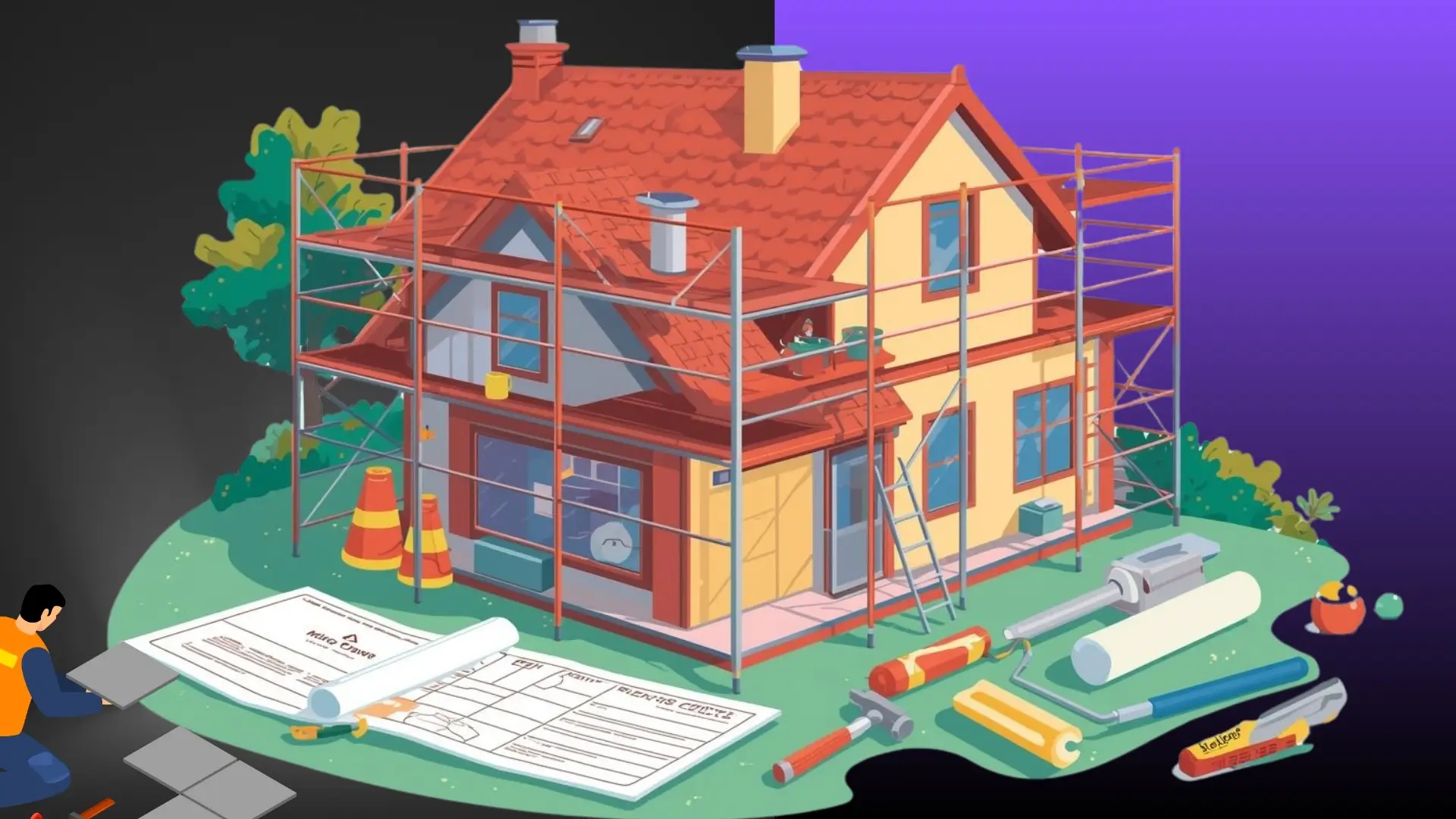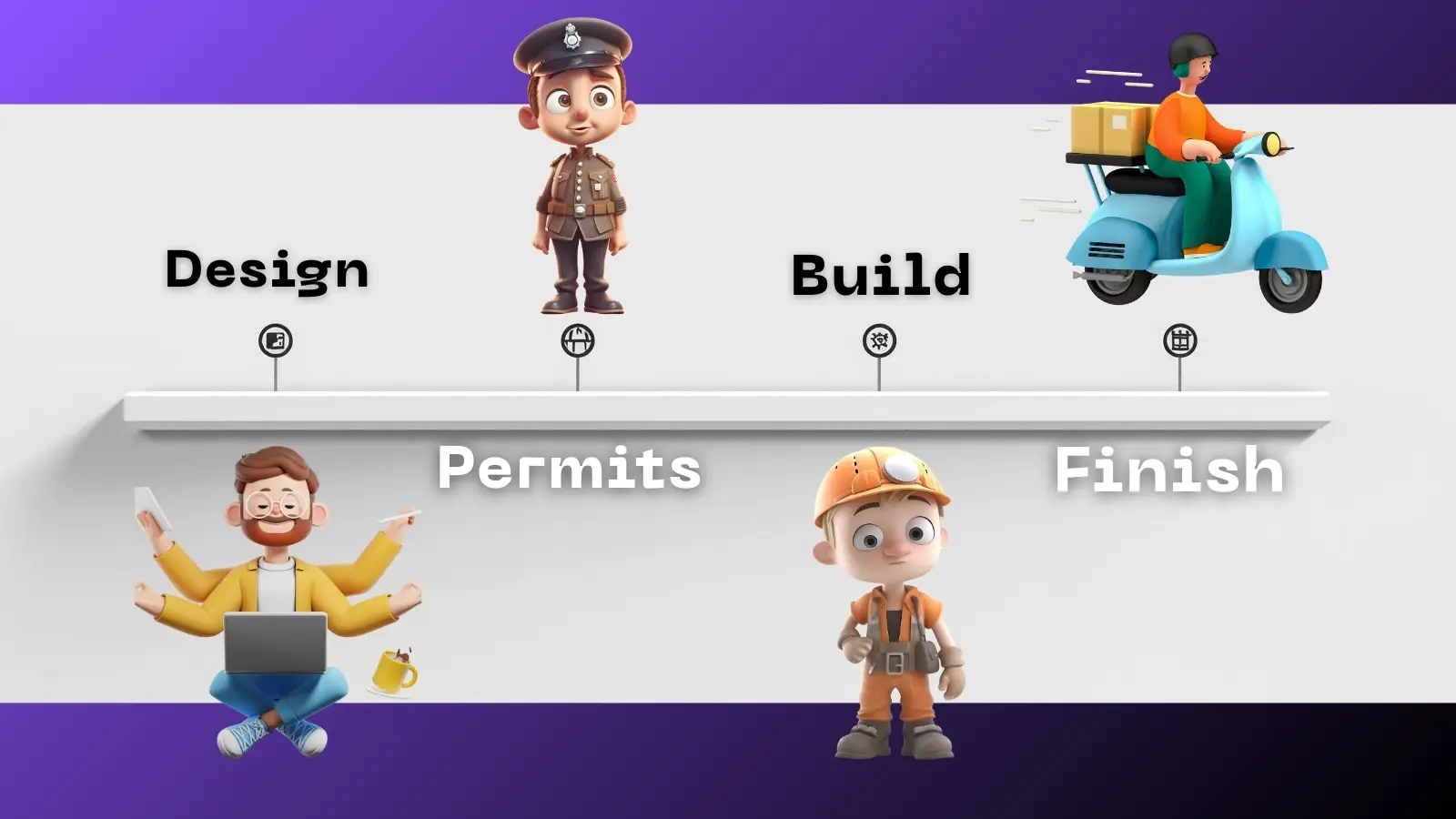Home Renovation Services: Complete Guide (2025)
This home renovation services guide gives practical, evidence-based advice on planning, budgeting and hiring for small and large projects — timelines, typical costs, permit basics and checklists to help you make confident decisions.

How much do renovations cost?
Costs vary by scope, finishes and location. Small cosmetic updates are much cheaper than structural additions.
Quick example ranges
Kitchen
Basic refresh: $5k–$15k. Mid-range: $15k–$40k. High-end or structural: $40k+.
Bathroom
Ranges typically: $5k–$30k depending on plumbing and finishes.
Home addition
Highly variable — foundations, utilities and permits drive the price. Expect a larger budget and timeline.
How to use these numbers
First, treat the ranges as planning estimates only. Then get local quotes to refine them.
For authoritative industry data and national context, see the National Association of Home Builders (NAHB). For local permit guidance, check your local authority (links below). For a full itemised breakdown, see Home renovation cost — full breakdown.
Regional home renovation services & cost variations
The same scope can cost very differently by city or country. Labour rates, local taxes and permit fees all affect the final price. For official permit info check your local authority (UK guidance below).
Seattle (USA)
Higher labour rates; mid-range kitchens often fall in the $20k–$50k bracket. See a US overview at USA permits.
Bangalore (India)
Lower labour rates but imported materials can add to costs. Local sourcing often reduces lead times and budget surprises.
London (UK)
Permits and VAT raise the final cost; labour rates are generally premium. For UK planning & building guidance, see gov.uk planning guidance.
If you want hyper-local guides (e.g., “Home renovation Birmingham”), we can build city-specific pages with tailored permit and cost details. For tips on finding reputable local firms, see remodeling near me.

Typical renovation timeline & checklist
Here’s a typical medium renovation timeline. Note durations vary with scope and permits — always allow contingency time.
- Week 0–2: planning, quotes, final scope and permits.
- Week 3–6: demolition, structural work and framing.
- Week 7–10: MEP (mechanical, electrical, plumbing).
- Week 11–14: finishes, fixtures, inspections and handover.
Use a planner to track tasks and costs through every milestone.

Finding and vetting contractors
Hiring the right contractor reduces risk. First, ask for references and proof of insurance. Next, compare written scopes and milestones.
What to request
- References: request 2–3 recent projects, and where possible, visit or view photos.
- Insurance & licences: verify registration numbers and policy coverage.
- Written scope: insist on a detailed materials list, timeline, and milestone payments.
Contract terms to watch
Avoid vague change-order clauses and very large upfront deposits. Instead, require clear completion dates and milestone payments.
Pro tip: use the same interview script for every contractor — it makes quotes comparable and highlights omissions.
For a full checklist of interview questions and a step-by-step vetting flow, see How to choose a general contractor: checklist.
Tools & resources
Downloadable worksheets and deeper guides to help plan and compare quotes.
Frequently asked questions
How much will my renovation cost? +
Do I need planning permission or building permits? +
How long does a typical renovation take? +
How should I choose a contractor? +
What deposit is reasonable to pay? +
Will my renovation increase the value of my home? +
What insurance or warranties should I expect? +
How should I plan for unexpected costs? +
Do I need to move out during a renovation? +
How do tax or VAT rules affect renovation costs? +
Ready to plan your renovation?
Download the Budget Planner, or book a quick audit to get a tailored strategy to grow your renovation business.